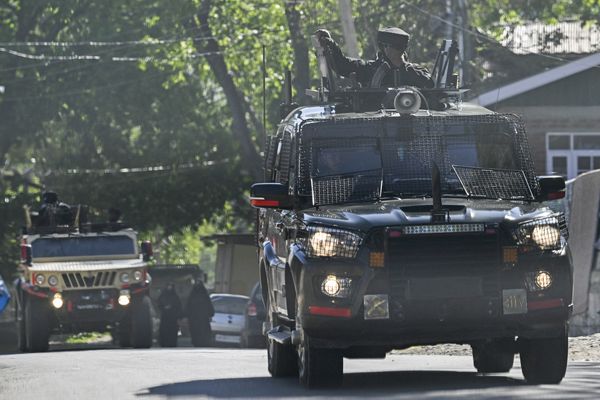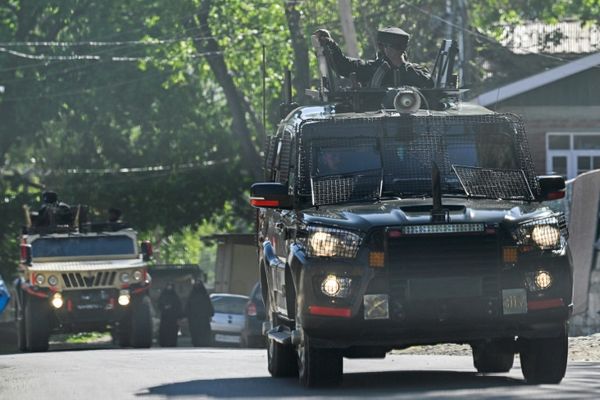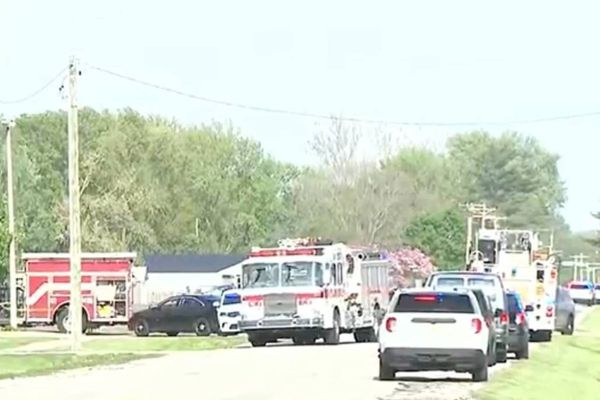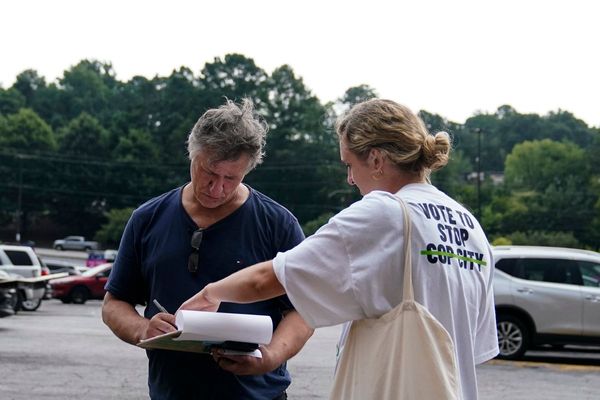Gas exploration projects in Queensland's Channel Country will be expensive to produce, generate "significant" carbon emissions and are likely to be abandoned, a report has found.
The report by Pegasus Economics, commissioned by environmental lobby group Lock The Gate, argued gas found in the Lake Eyre and Cooper Basins would cost energy companies millions of dollars to extract and produce.
"Although significant gas resources do exist in the Lake Eyre and Cooper basins, it's just not economically viable to actually extract," said the report's author, Alistair Davey.
Major player Origin Energy last month announced it would take steps to abandon its 11 exploration permits in the region to focus on the transition to clean energy.
The permits will now either be sold on to another energy company or forfeited back to the Queensland government, which granted the exploration leases last year.
The Queensland Resources Council said gas remained an important part of the transition to renewable energy and more gas resources would be needed in the future.
"The demand for gas internationally has grown exponentially with the Ukraine crisis," the council's chief executive Ian MacFarlane said.
"And the demand for gas in Australia is increasing daily."
Fracking required to extract gas
Located about 1,200 kilometres south-west of Brisbane, the Channel Country region is home to more than 300 trillion cubic feet of largely unconventional shale gas, which requires hydraulic drilling — or fracking — to extract.
Energy companies have wanted to explore the region for natural gas deposits for decades.
Dr Davey, who spent 15 years working for the federal government and the Australian Competition and Consumer Commission, believed Origin had seen the writing on the wall.
"Large multinational oil and gas companies don't pull out of prospecting projects unless they're fairly confident the resources [aren't] economically viable to extract," he said.
Dr Davey said high production costs and carbon emissions produced during extraction had also cast doubt over proposed gas sites.
"Unless there is a significant improvement in extraction technology, or there is another deposit of gas that is cheaper to extract, then it would be extremely difficult to get up and running," he said.
High price to offset fugitive emissions
The Pegasus Economics report found unconventional gas in parts of the Lake Eyre Basin contained high levels of additional carbon dioxide, which would be released directly into the atmosphere through extraction.
It also claimed the cost of offsetting fugitive emissions — methane gas that escaped during mining — would be significantly higher than gas projects in other regions.
Those factors, Dr Davey said, would see energy companies spend millions of dollars off-setting emissions through carbon, capture and storage (CCS) projects.
But Mr MacFarlane said energy companies factored in associated production costs when considering exploration projects.
"The technology has improved, and the provision of infrastructure and the demand for gas is all part of that equation," he said.
"Also, responsible conservationists accept that gas is an important part of the transition to renewable energy. We require more gas [as] we go forward."
The ABC contacted Queensland's Department of Environment and Science but did not receive a response.
A benefit to shrinking communities
Mr MacFarlane said gas production projects could benefit remote communities that were struggling to retain their populations.
The town of Jundah, which sits on the edge of permit sites held by Origin Energy, has a population of just 131, according to the latest census results.
"[Gas projects] bring better roads, better telecommunications, better electricity infrastructure," Mr MacFarlane said.
"On top of that, the compensation payments by the landholders who have wells on their properties completely changes the economic climate in those regional communities."
But traditional owners and local graziers argue the process of fracking the Channel Country may contaminate the fragile waterways, which support wildlife and major grazing operations.
"The Channel Country as a whole is relatively untouched, and I think it should stay that way," said Ann Rayment, who runs the sprawling and isolated Connemara cattle station.
A risk of 'catastrophe'
Last year, the state government granted the petroleum leases to Origin Energy across more than 250,000 hectares of land despite repeated election promises to protect the region.
Energy companies need environmental approval before any fossil fuel exploration can go ahead in permit areas.
Ms Rayment is concerned drilling could impact the rivers that flow through her property.
"If anything were to happen on the flood plains, it would be a catastrophe," she said.
"We've got to look after our own dunghill because no one else will.
"In 20 years' time, I don't want to be looking back, if something did happen, and saying, 'If only I spoke out'."
Origin's exit an indicator
Energy finance analyst for the Institute for Energy Economics and Financial Analysis, Bruce Robertson, said Origin's decision to divest from the region could signal gas is on the decline despite global demand.
"Gas is slowly wending its way out of the energy system," he said.
"[Gas] generation is down 42 per cent since 2014 and gas usage in industry is also down 11 per cent, because it's just too expensive in Australia."
A spokesperson for Origin said the company's ambition was to "lead the energy transition".
"Our intention to exit our exploration permits in the Cooper Eromanga over time will enable greater flexibility to allocate capital towards our strategic priorities to grow cleaner energy," the spokesperson said.
They said the nature of exploration was to determine whether resources were recoverable.
Demand expected to fall
Mr Robertson said the remoteness and production costs of extracting gas might have played a role in Origin's decision to walk away from its projects.
"The cost of getting the gas to market [is] very high," he said.
"The chances of these getting developed in the medium term are quite low because what we're seeing globally is the substitution out of gas.
"As this occurs, demand for gas will fall and demand for Australia's exports of gas will fall."







